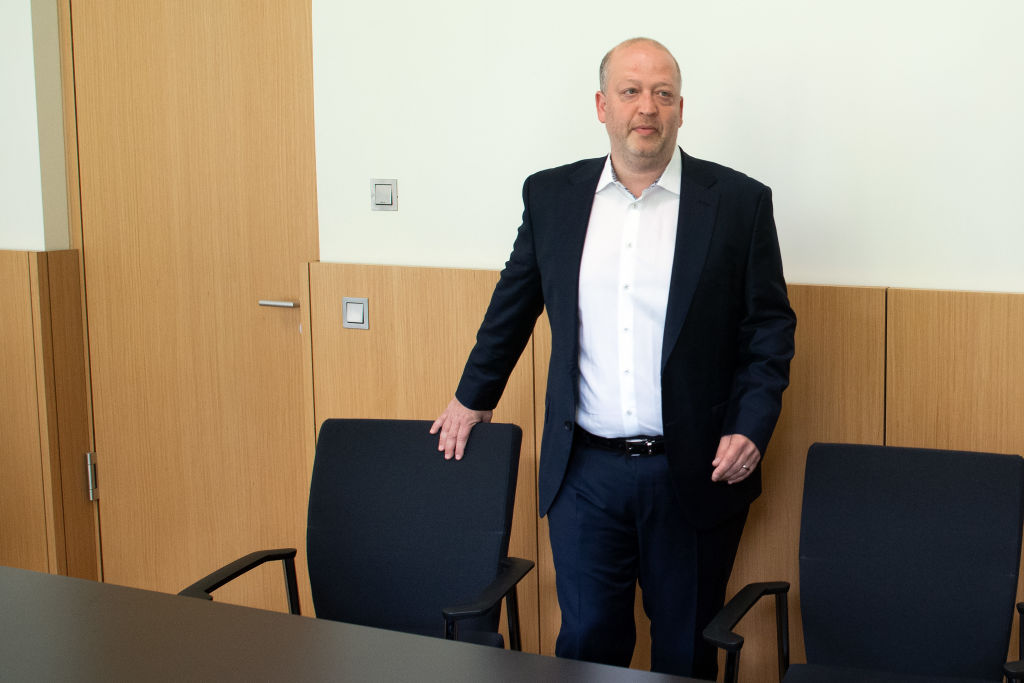
A Düsseldorf court has sentenced the art dealer Ernst Jockels to two years and four months in prison for attempting to sell forged artworks purportedly by German artists Günther Uecker and A.R. Penck. The dealer maintains the works are authentic and told Artnet News that he plans to appeal the decision.
The city’s district court ruled on Tuesday, August 24, that the 48-year-old dealer was guilty of fraud. It also found him guilty of falsifying documents, trespassing, making a false affidavit, and insulting a judge, the German outlet Monopol reported. (Although the outlet did not name the dealer, he was identified in earlier German press reports about the trial and confirmed his identity to Artnet News.)
Jockels, who now lives in Riga, Latvia, was accused of selling work purportedly by the Zero artist Günther Uecker, and of offering five fake paintings purportedly by the late Neo-Expressionist painter A.R. Penck for sale online at prices between €6,000 and €68,000. Works attributed to Penck, who died in 2017, and Uecker, now 91 years old, remain advertised on Jockels’s gallery website.
The conviction follows legal proceedings last month that saw Uecker appear in court with his son Jakob to examine 15 signed, handmade greeting cards Jockels had sold online as the work of the artist for nearly €19,000, according to the German outlet Bild.
During the trial, Uecker looked at the hand-signed cards pierced by a nail—a reference to his famous “Nagel” works, in which he used nails to create sculptural paintings—and testified that while he had made a number of cards for friends to ring in the new year in 2005, he had not done so in 1990, the year these cards were dated. “I’m seeing this for the first time,” he said in court.
A spokeswoman for Düsseldorf’s local court confirmed the charges (though Jockels denied that forging documents was among them). She noted that the judgment is “not final” because Jockels can still appeal.
In a lengthy response to the allegations, Jockels maintained that the works he sold were authentic and that the initial trial was unfair. He said no witnesses were called and that the court-appointed expert for Penck’s work had a conflict of interest. (Contacted by Artnet News, the expert denied this allegation.)
“The public should also know that it’s quite new for German postwar artists to fetch the high prices as they do for the moment,” Jockels told Artnet News. “As prices increased so much, people are willing to sell and more is showing up [than artists and gallerists would like].”
He added that he is confident that the “ridiculous” sentence will be revised on appeal.
Uecker’s gallery Lévy Gorvy did not immediately respond to a request for comment. Penck’s representative Michael Werner said he had not been directly involved in this case but that the the gallery “closely watches fakes on the market and cooperates with the police.” So far, he said, they have yet to lose a case.